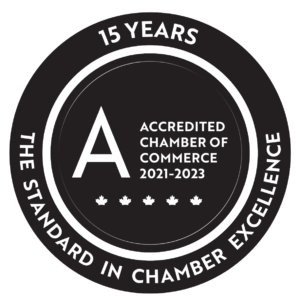Backgrounder
The government has taken immediate and decisive action to help keep Canadians employed and support businesses through this challenging time. Canada’s COVID-19 Economic Response Plan includes support for businesses of all sizes so that they can avoid layoffs, pay their employees and cover their rent.
Canada Emergency Business Account (CEBA)
Small businesses and not-for-profits have access to the Canada Emergency Business Account (CEBA), which provides interest-free, partially forgivable loans of up to $40,000 and is offered through financial institutions, such as banks and credit unions, in cooperation with Export Development Canada.
As of July 3, 688,000 applicants have been approved for CEBA for a total of $27.41 billion in funds disbursed, including $7 billion of which is forgivable if the loan is paid back before December 31, 2022. Over 65 per cent of the businesses eligible based on the payroll criteria have benefitted from the program.
Canada Emergency Wage Subsidy (CEWS)
To help keep Canadians employed and support businesses, the government introduced the Canada Emergency Wage Subsidy (CEWS) – a wage subsidy of 75 per cent for qualifying employers, up to $847 per week per employee, beginning March 15, 2020. The CEWS gives employers financial support so they can keep or re-hire their workers. The CEWS helps Canadians keep their jobs, and prepares businesses to rebound from the crisis in a strong position. To date, the program has supported about three million employees by helping them stay in the workforce or return to work.
Taking into consideration the comments of key business and labour organizations during April and early May, the government announced on May 15, 2020 a proposal to extend the CEWS by an additional 12 weeks to August 29, 2020. The May 15 announcement also included a proposal to extend eligibility for the CEWS to a number of other types of employers that were not included previously.
Canada Emergency Commercial Rent Assistance (CECRA)
As Canadians take action in the fight against COVID-19, many small businesses have been forced to close entirely and as a result have struggled to pay rent. Together with the provinces and territories, the government introduced the Canada Emergency Commercial Rent Assistance (CECRA), which helps lower rent for eligible small businesses by 75 per cent in April, May and June, with a one-month optional extension to cover July rent.
As of July 3, Canada Mortgage and Housing Corporation (CMHC), the CECRA program administrator, has approved applications representing over 29,000 small businesses with over 209,000 employees, and total requested funding of over $221 million. In addition to thousands of applications by property owners in progress or being processed, CMHC is working closely with large property owners to complete applications to provide rent support to a further 25,000 small businesses.
Local, Family-owned Restaurant
Sammy owns a family-run restaurant that his parents opened when they immigrated to Canada.
- In March, to comply with emergency measures, Sammy was forced to temporarily close the restaurant, and lay off the restaurant’s employees with no pay. Sammy’s restaurant never offered take-out or delivery, but, on April 19, Sammy decided to offer these services to the community, and was able to hire back four of his staff, each with a salary of $750 per week. Despite his efforts, Sammy experienced an average revenue decline of more than 70 per cent from April to June compared to the corresponding periods in 2019.
- Sammy was very concerned about how to pay his $5,000 in rent. In late March, Sammy approached his property owner, Mary, about the possibility of reducing his monthly rent. While Mary was very sympathetic, and concerned about her ability to preserve her future rental revenue should Sammy lose his business, she was only able to defer a portion of Sammy’s rent given her own expenses to maintain the commercial property.
- Sammy and Mary were able to access the CECRA. Mary obtained a forgivable loan from CMHC in the amount of $7,500, equal to 50 per cent of Sammy’s gross monthly rent for April, May and June, and is considering applying for the one-month extension to provide Sammy with a bridge to relaunch his business as the economy re-opens. Sammy and Mary equitably shared the remaining 50 per cent of Sammy’s monthly rent, reducing Sammy’s rental obligations to a more manageable $1,250 per month for the corresponding period.
- Sammy was able to access the CEWS which provides a subsidy of 75 per cent of an employee’s salary to help him pay for his labour costs. For the months of April to early June, he received a total of $15,750 in CEWS support to pay his four employees.
- Sammy was also able to access the Canada Emergency Business Account, an interest-free, partially forgivable loan of up to $40,000 to help pay non-deferrable operating expenses for his business, including the rent and payroll expenses remaining after receiving CECRA and CEWS. Through his financial institution, Sammy could also apply for the SME Loan and Guarantee Program under the Business Credit Available Program should he need additional financing.
- In addition, Sammy has the flexibility to defer any payment of income tax amounts that become owing until after August 31, 2020, and was able to defer remittance of collected GST/HST and customs duties until June 30.
Business Credit Availability Program (BCAP)
Through the Business Credit Availability Program (BCAP), the government has ensured that credit and liquidity support is available to small and medium-sized businesses who need it. The Small and Medium Enterprise Co-lending Program allows eligible businesses to access up to $12.5 million in liquidity support, and a further loan of up to $6.25 million is available through the BCAP Guarantee Program. As of July 3, 148 guarantees have been confirmed for a total loan value of over $303.59 million. Based on the experience with similar products made available during the 2009 financial crisis, uptake of these programs is expected to grow steadily over time.
The BCAP is also providing support tailored for mid-market businesses with larger financing needs from across the economy. Support for these businesses includes loans of up to $60 million per company and guarantees providing enhanced access to loans of up to $80 million. Access to financing supports ensures larger companies can pay the salaries of millions of Canadians these businesses employ, and support the suppliers who rely on their business.
A Small Manufacturing Company
Ali owns a small manufacturing corporation in Markham, Ontario that fabricates auto parts. 75 per cent of its output is exported. The company employs 25 full time employees, each earning an average monthly salary of $4,250. They have had a few large orders suspended, resulting in a 35 per cent revenue drop.
The company was able to access the CEWS for wage subsidies of $79,688/month, for a total benefit of $239,063 for the period of March 15 to June 6, 2020 to maintain its workforce of 25 employees. It can defer any payment of income tax amounts that become owing until after August 31, 2020, giving the business more financial flexibility to address immediate needs. The company was also able to defer payments of GST/HST, as well as customs duty payments on imports, until June 30.
Ali was also able to access the Canada Emergency Business Account, an interest-free, partially forgivable loan of up to $40,000 to help pay non-deferrable operating expenses for his business, including the rent and payroll expenses.
Ali can also speak to his bank about existing business credit products and specific opportunities for relief. If his needs exceed the level of support Ali’s bank is able to provide, the bank could utilize the BCAP SME Loan and Guarantee Program that may offer up to $18.75 million of additional credit for the company.
Large Employer Emergency Financing Facility (LEEFF)
Canada’s large-sized companies employ millions of Canadians. The LEEFF program supports Canada’s largest employers, with annual revenues generally in the order of $300 million or higher and seeking financing of $60 million or more. Canada’s large-sized companies employ millions of Canadians. The government has put in place the Large Employer Emergency Financing Facility (LEEFF) to help them get through this crisis so that they can continue to support their workers. The LEEFF offers significant bridge financing to firms whose needs during the pandemic are not being met through conventional financing. Applications for LEEFF have been received and are currently undergoing the necessary due diligence to protect taxpayers.
The LEEFF is available to support Canadians working in sectors across the economy in a fair and consistent way. Companies that receive LEEFF funding are required to publish an annual climate-related financial disclosure report, provide information on how they are contributing to achieving Canada’s commitments under the Paris Agreement and goal of net-zero by 2050, and meet obligations under existing pension plans and collective bargaining agreements.




